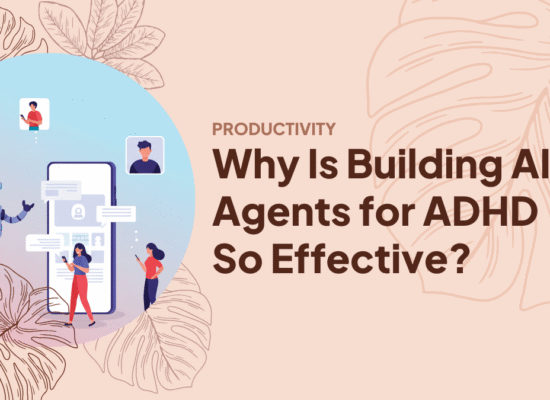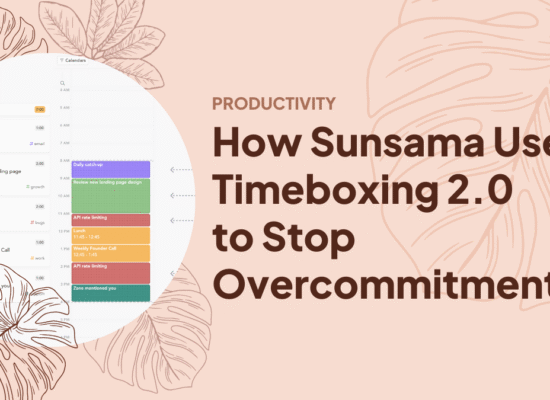Table of Contents
- Internet Connectivity: The Make-or-Break Infrastructure Challenge
- Productivity Optimization: Why Generic Solutions Fail Freelancers
- Client Acquisition: The Never-Ending Business Development Challenge
- Payment Systems: Protecting Your Financial Foundation
- Workspace Design: The Foundation of Professional Performance
- Building Sustainable Systems for Long-Term Success
- Stop Procrastinating and Start Organizing Your Freelance Life
The freelancing landscape has transformed dramatically in recent years, creating new freelancing struggles that catch even experienced professionals off guard. What worked in 2020 feels outdated in 2025, and the pace of change has left many independent workers scrambling to adapt.
Having spent years helping businesses navigate digital marketing challenges, I’ve observed that the same strategic thinking required for client acquisition applies directly to overcoming freelancing struggles. Success demands systematic approaches rather than reactive solutions.
Recent data reveals that while 68% of freelancers report technology has made finding work easier, the underlying freelancing struggles have intensified. More people are entering the freelance market, but competition and complexity have grown exponentially.
Here are five critical freelancing struggles most professionals face, along with actionable strategies to resolve them.
Internet Connectivity: The Make-or-Break Infrastructure Challenge
Your internet connection now determines your professional reputation more than ever before.
A single dropped connection during a crucial client presentation can destroy months of relationship building. Poor connectivity transforms routine tasks into stress-inducing ordeals, particularly as remote work has become the standard rather than the exception.
The solution involves building redundancy into your infrastructure. I maintain subscriptions with two internet service providers and keep a high-quality mobile hotspot as backup. When primary connectivity fails, immediate failover prevents work interruption.
5G networks and Starlink satellite internet have expanded our options significantly. These aren’t luxury upgrades—they’re professional insurance policies protecting against one of the most common freelancing struggles.
Identify local venues with reliable WiFi as tertiary backup options. Libraries, coworking spaces, and established coffee shops can serve as emergency workspaces when home connectivity fails unexpectedly.

Productivity Optimization: Why Generic Solutions Fail Freelancers
Standard productivity advice rarely addresses the unique freelancing struggles independent workers face daily.
The internet overflows with time management systems, productivity apps, and optimization frameworks. The challenge isn’t finding advice—it’s identifying what actually works for your specific situation, work style, and client demands.
Through experimentation, I discovered my peak focus occurs between 6 AM and 10 AM. Scheduling client calls during these hours wastes my most productive period. Understanding your natural rhythms matters more than copying popular scheduling templates.
The Pomodoro Technique helps some freelancers while creating anxiety for others. Time-blocking provides structure for certain personality types but feels restrictive to creative professionals. Your productivity system must align with your working style, not mirror someone else’s success story.
For freelancers dealing with attention challenges, tools like Sunsama for ADHD brains can provide the structured planning approach that traditional methods lack. Similarly, an anti procrastination dashboard Notion template can help maintain focus across multiple client projects.
Approach testing systematically rather than randomly. Commit to each method for minimum two-week periods before evaluating effectiveness. Document what works and what doesn’t, then build your personalized productivity framework through careful iteration.
Client Acquisition: The Never-Ending Business Development Challenge
Freelancers invest approximately 6.7 hours weekly in business development activities—nearly a full workday dedicated solely to finding new opportunities.
Client acquisition represents a continuous effort that persists even during busy periods with existing projects. This business development work requires consistent attention rather than sporadic bursts when current work nears completion.
Platforms like Upwork and Fiverr remain viable, but success requires strategic approach. Craft proposals addressing specific client pain points rather than generic capability listings. Research each prospect thoroughly and personalize every pitch accordingly.
Industry-specific social media groups often yield higher-quality opportunities than general freelance platforms. LinkedIn groups, Facebook communities, and professional forums facilitate relationship-based referrals rather than transactional cold outreach.
For specialized industries like marketing, connecting with a reputable creative agency can provide steady subcontract opportunities while you build your independent client base.
Your existing network provides the most valuable source of new business. Former colleagues, satisfied clients, and professional contacts generate more referrals than any marketing campaign. Maintain regular contact with these relationships year-round, not just when seeking new work.
Payment Systems: Protecting Your Financial Foundation
Consistent payment collection keeps freelance businesses operational long-term.
Late payments and non-paying clients destroy freelance operations faster than skill gaps or marketing weaknesses. Protecting your revenue requires systematic approaches rather than hoping for client integrity.
Comprehensive contracts with explicit payment terms establish clear expectations from project initiation. Document payment schedules, accepted methods, and late payment consequences. Address these topics during initial client conversations, not after problems emerge.
Require deposits from new clients and milestone payments for extended projects. This approach filters out uncommitted prospects while protecting your cash flow. Research shows 65% of freelancers consider client diversification safer than traditional employment, but only when those clients pay consistently.
Establish payment processing preferences before beginning any work. Some clients prefer checks, others use wire transfers, and many prefer digital payment platforms. Agreeing on methods early prevents unnecessary delays later.
Watch for red flags during prospect conversations. Clients who negotiate aggressively on payment terms, request extensive unpaid work, or avoid payment discussions often become problematic accounts.
Workspace Design: The Foundation of Professional Performance
Your physical environment directly impacts work quality and mental well-being—two critical factors many freelancers overlook until problems emerge.
The romantic notion of “working from anywhere” loses appeal when you’re trying to concentrate in noisy environments or struggling with poor lighting throughout the day. Optimizing your workspace requires understanding your specific needs rather than copying aesthetically pleasing setups from social media.
Some professionals thrive in bustling environments while others require complete silence. Natural light energizes certain people while others prefer controlled artificial lighting. Your ideal workspace depends on personal preferences and work requirements.
For freelancers managing attention challenges, proper workplace accommodations for Filipinos with ADHD can significantly improve focus and productivity. Understanding cultural and neurological factors helps create more supportive work environments.
Establish dedicated home office space when possible. Separating work and personal areas helps maintain healthy boundaries while signaling to your brain that it’s time to focus. Even designating a specific corner works better than working from your couch.
Consider rotating between different locations to maintain engagement. Working in identical settings daily can reduce motivation. Alternate between your home office, local cafés, libraries, or coworking spaces based on your current tasks and energy levels.
Many Filipino women with ADHD find that changing environments helps manage attention fluctuations while maintaining professional productivity standards.

Building Sustainable Systems for Long-Term Success
These freelancing struggles share a common thread: they require proactive planning and systematic solutions rather than reactive problem-solving.
Succeeding in freelancing demands treating your practice as a legitimate business rather than a collection of individual projects. This means investing in proper tools, developing repeatable processes, and preparing for predictable challenges.
The autonomy and flexibility make these freelancing struggles worthwhile investments. However, sustaining long-term success requires acknowledging these challenges exist and building systematic solutions to address them progressively.
Your freelance business needs the same strategic planning you’d apply to any professional venture. The difference lies in serving as both executive leadership and entire workforce simultaneously.
Key Takeaways
- Freelancing struggles require systematic solutions rather than reactive fixes to maintain professional success.
- Building redundant systems for connectivity, payments, and client acquisition protects against common freelance business failures.
- Personalizing productivity approaches and workspace design based on individual needs creates sustainable competitive advantages.
Stop Procrastinating and Start Organizing Your Freelance Life
Frequently Asked Questions
What are the biggest freelancing struggles
The top challenges include unreliable internet connectivity, client acquisition difficulties, payment collection issues, productivity optimization, and workspace design problems.
How can freelancers overcome payment collection problems?
Use comprehensive contracts with clear payment terms, require deposits from new clients, and establish milestone payments for longer projects.
Why do generic productivity tips fail for freelancers?
Freelancers have unique schedules, multiple clients, and varying work types that require personalized productivity systems rather than one-size-fits-all approaches.
Maria is an accomplished digital marketing professional, specializing in content marketing and SEO. She's a neurodivergent who strives to raise awareness, and overcome the stigma that envelopes around mental health.








No Comment! Be the first one.